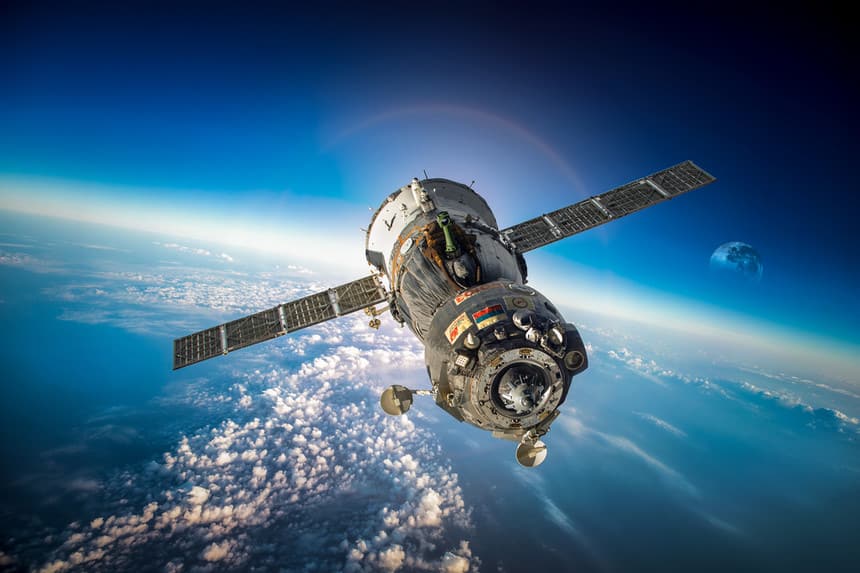Exploring The Space Sciences And ISRO
Space Science is a fascinating field that encompasses Physics, Chemistry, Mathematics, Geology, and other disciplines. Those working in Space Sciences could be astronomers, geologists, planetary scientists, material scientists, or computer scientists. A huge number of students want to pursue a career in the Space Sciences in general, but they often need more specific information on what the field comprises, course alternatives, higher education institutes to consider, and career prospects. With this in mind, Careers360 invited Padma Bhushan Dr. B.N. Suresh, Chancellor, Indian Institute of Space Science and Technology, Trivandrum, to help students learn more about how to build a career in the Space Sciences. Here are some snippets from his address to the attending students.

ISRO: A Credible Employer
ISRO is a government organisation that functions as a model employer. It is a global leader in space technology, with incredible human resources and infrastructure. It is a high-performing organisation that safeguards its employees' interests by introducing them to high-quality technology on a regular basis. It provides suitable guidance and training to its employees in order to help them attain their full potential.
Exposure To Best Technology
Areas like space technology necessitate exceptionally high-quality and highly-reliable technology, resulting in professional freedom in development activities. The high quality and reliability criteria result in a diverse range of professional opportunities in Space Science and Engineering. Students will have a lot of opportunities to study and grow as a result of this.
Working With Skilled People
Working for ISRO gives you the chance to be a member of a highly- skilled team. It establishes interdisciplinary work environments and emphasises the need for teamwork. It is concerned with future-oriented programs. It works for decade profiles, five-year plans, or annual programs, rather than working for today or tomorrow. It allows for professional flexibility.
Valued Employee Contribution
One of the reasons why young people choose to join ISRO is that working in the field of Space Science provides a well-defined cadre and career path. Individual brilliance is related to the organisation's progress, which distinguishes ISRO from other government agencies. ISRO employees serve important responsibilities both domestically and internationally, and high achievers are rewarded with fast-track advancements.
Two Categories Of Staff
ISRO has two categories of personnel:-
Scientific and Technical Staff | Scientists, engineers, technical assistants, paramedical workers, agricultural staff, attendants, and others fall into this category.
Administrative Staff | Administrative personnel include office employees, stenographers, canteen workers, security personnel, fire service personnel, school personnel, and drivers.
Pay And Benefits
ISRO offers attractive salary packages to its employees, even at the entry level. It offers a basic pay of Rs 56,100, dearness allowance of Rs 15,708, house rent allowance of Rs 13,464, and transportation allowance of Rs 9216, totalling Rs 84,488. Employees are eligible for other performance-based incentives after one year of employment, such as organisational incentives, group incentives, individual incentives, and professional update incentives.
Also Read | What Makes An Engineering College Your Best-Fit?
Growth Opportunities
After joining ISRO, one gets the opportunity to pursue higher study on a scholarship at various IITs, IISc, and IIST. It allows students to participate in seminars, workshops, conferences, events, and paper presentations. Employees are allowed for study leave after three years of service to pursue further education at a variety of academic institutions.
 ISRO Offers Immense Scope For Growth To Its Members
ISRO Offers Immense Scope For Growth To Its Members
Schemes And Other Facilities
Various schemes are provided to the employees of ISRO. These include:
- New Pension Scheme (NPS)
- Central Government Employees Group Insurance Scheme (CGIS)
- In-House Welfare Schemes- SAFE and VISWAS
- Contributory Health Service Scheme (CHSS)
- Leave Travel Concession (LTC)
- Merit Promotion Scheme
Recreational Activities
Working for ISRO allows you to participate in recreational activities like indoor and outdoor sports meets, cultural programs, and in-house magazine publishing, among others. World Space Week, National Science Day, National Technology Day, Vigilance Awareness Week, and National Safety Week are among the national and international events commemorated.
Also Read | Careers In Science: Know How To Get There
Following Dr. Suresh’s address to the students, a zealous Q&A round took off. Below are a few excerpts from the interaction between the students and Dr. Suresh.
Understanding Different Terms
What is the fundamental difference between aeronautical engineering, aerospace engineering, and avionics? Aeronautical engineering has a long history and is mostly concerned with planes and other flying objects. Aerospace engineering arose from aeronautical engineering and is concerned with missiles, launch vehicles, and spacecraft that leave the ground and travel deep into space. Avionics, on the other hand, is concerned with the development of various aviation electronics that are required for aircraft and spacecraft missions.
Which Subjects Are Needed?
For a student to enter the field of Space Science, a good foundation in Maths and Physics is essential. Mathematics is required for all engineering, while Physics is required for the implementation of theory, making both disciplines incredibly significant for students to master.
Scope Of Astronomy
India will become one of the most prominent nations in Science and Technology in the coming years, and astronomy will play a significant role in that. India now has space laboratories and centers, which provide students with numerous chances. Space initiatives are also supported by the government. You can pursue astronomy if you are technically innovative and can build a proper blueprint of what you want to do.
Place For AI At ISRO
AI can be applied in a variety of applications, ranging from smartphones to the International Space Station. It's more of a skill that has to be honed than a course. To gain a career at ISRO, it should be learned in addition to particular space engineering courses.
Who Else Does ISRO Hire?
ISRO recruits people with MSc Physics, MSc Mathematics, MSc Chemistry, and other related degrees, but those with engineering backgrounds have an advantage. People with backgrounds in management, commerce, and other fields are also hired, but in a very small number, because they aren't involved in or related to space activities.
Watch Now | Webinar On Careers In Space Sciences
Applications for Admissions are open.
As per latest syllabus. Physics formulas, equations, & laws of class 11 & 12th chapters
JEE Main Important Chemistry formulas
Get nowAs per latest syllabus. Chemistry formulas, equations, & laws of class 11 & 12th chapters
JEE Main high scoring chapters and topics
Get nowAs per latest 2024 syllabus. Study 40% syllabus and score upto 100% marks in JEE
JEE Main Important Mathematics Formulas
Get nowAs per latest syllabus. Maths formulas, equations, & theorems of class 11 & 12th chapters
